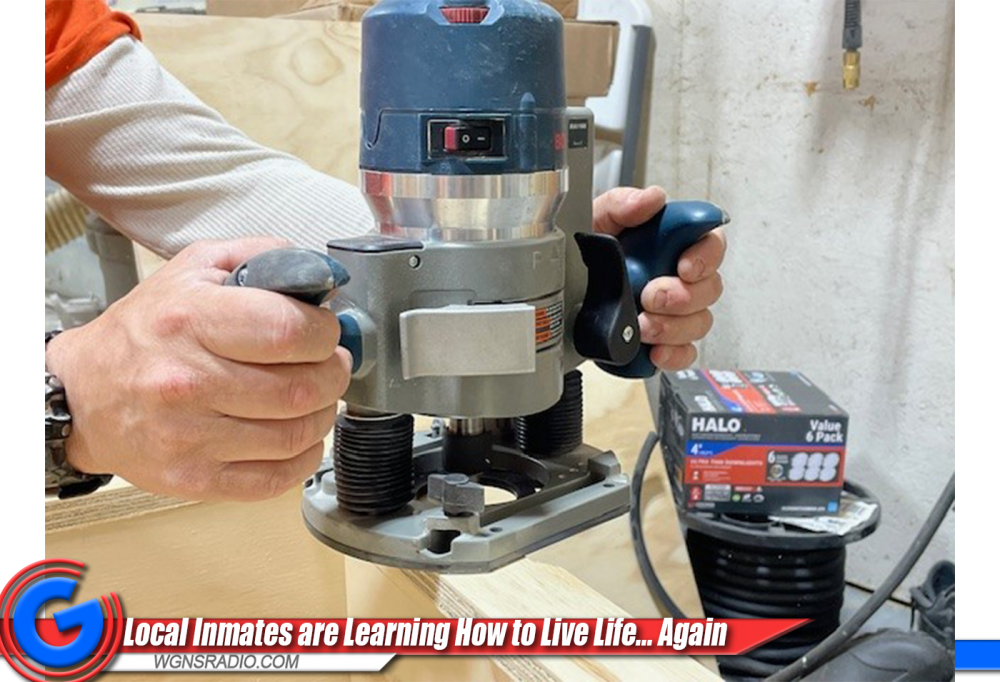Inmate James, age 30, describes himself as a “real bad addict” who lost custody of his children. Fellow inmate Danny, who is 41, admits he didn’t think about his prior actions and “what I did wrong to my loved ones.” Inmate Sam, age 33, experienced problems with addiction.
All three are now improving their lives while incarcerated at the Rutherford County Adult Detention Center while preparing for their release.
Deputy Jill Miles serves as the program coordinator for inmates. She works with the Rutherford County Recovery Court’s Re-Entry Program team who provide classes at the Detention Center. Their goal is to promote long-term recovery and independence after release from jail.
The Re-Entry Program consists of classes in:
- Anger Management to resolve conflict, use coping skills and build constructive relationships.
- Moral Reconation Therapy to slow recidivism by reducing criminal thinking and associations. Students learn to address substance abuse and set long-term goals.
- Seeking Safety to help with trauma and to learn new ways of coping.
- Relapse Prevention to understand situations that may trigger a relapse and participate in substance abuse programs.
- Codependency for inmates with substance abuse and mental health and relationship challenges.
Danny, James and Sam are among 10 maintenance trusties enrolled in the Re-Entry classes. They have graduated from some classes and earned certificates in relapse prevention, Moral Reconation Therapy and Peer Support Group attendance.
James said he was unaware of the triggers with substance abuse and experiences problems with trusting people. He is troubled about the lost custody of his children. “How am I going to cope with that when I get out?” James asked.
He’s learning how to cope. The Re-Entry team is helping him get accepted for a halfway house, landing a job and getting a driver’s license. They are helping him improve his reading. “These people are there for you,” James said.
Danny said each student works on their own pace. He focuses on relationships. “You don’t think about what you’ve done to a loved one,” Danny said. The classes teach “you to untangle relationships you’ve destroyed and what you can do to fix it. It helps make your relationships better.”
Now that he’s sober, Danny is learning to be aware of triggers leading to drinking and instead use his tool box of family, friends and counselors to avoid the triggers. “These teachers, they legitimately care,” Danny said. “They want you to do good.”
Sam said he was sober when his brother died. “I didn’t know how to cope with it and I resorted to drugs,” Sam said. Being in jail helped him become sober. The classes help him understand how to cope with triggers that cause relapses. “I had a problem for a long time,” Sam said. “There are ways of overcoming that problem.”
He’s learned from individual counseling and talks with teachers. When released, he can still reach out to the counselors and teachers to cope with triggers.
Sam will focus on improving his relationships with his three children and family and begin working as soon as he’s released. “I am thankful to be able to do that class,” Sam said. “It really does help.”
The maintenance deputies train trusties like Danny, James and Sam to learn trade skills during the day. The trusties participate in Re-Entry classes in the afternoon.
Miles said the trusties are excited about their new opportunities to learn. “Once they are ready to get out and focus on what they’ve learned, I definitely think it will help,” Miles said. “They will have way more opportunities and Re-Entry is willing to help them. This is a big opportunity for them.”





